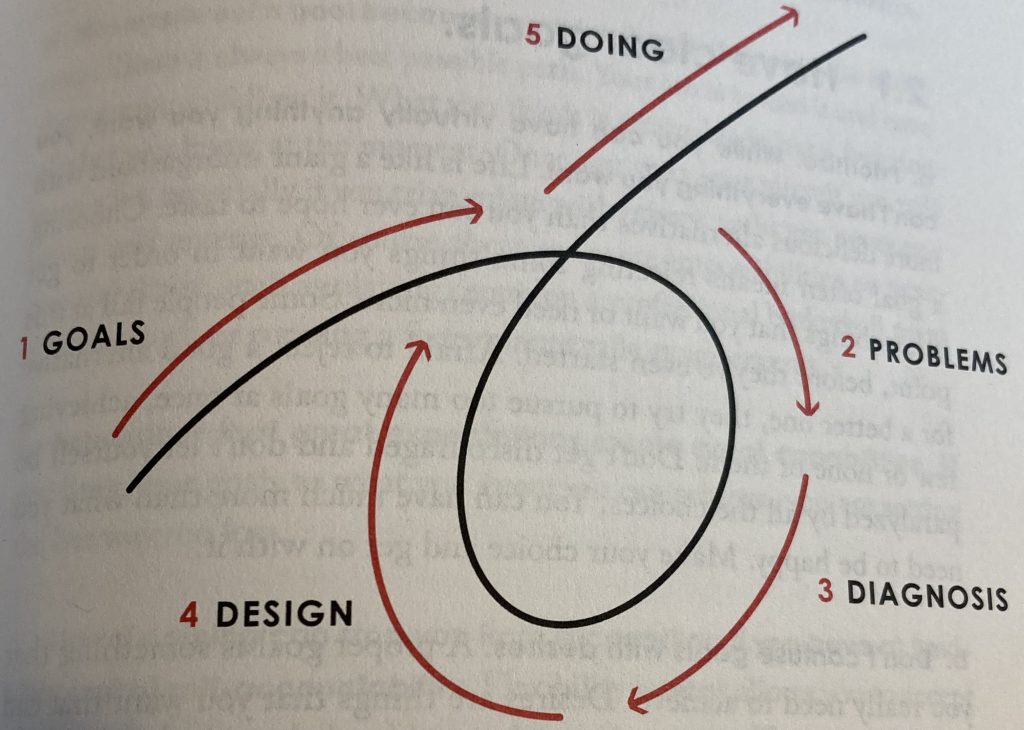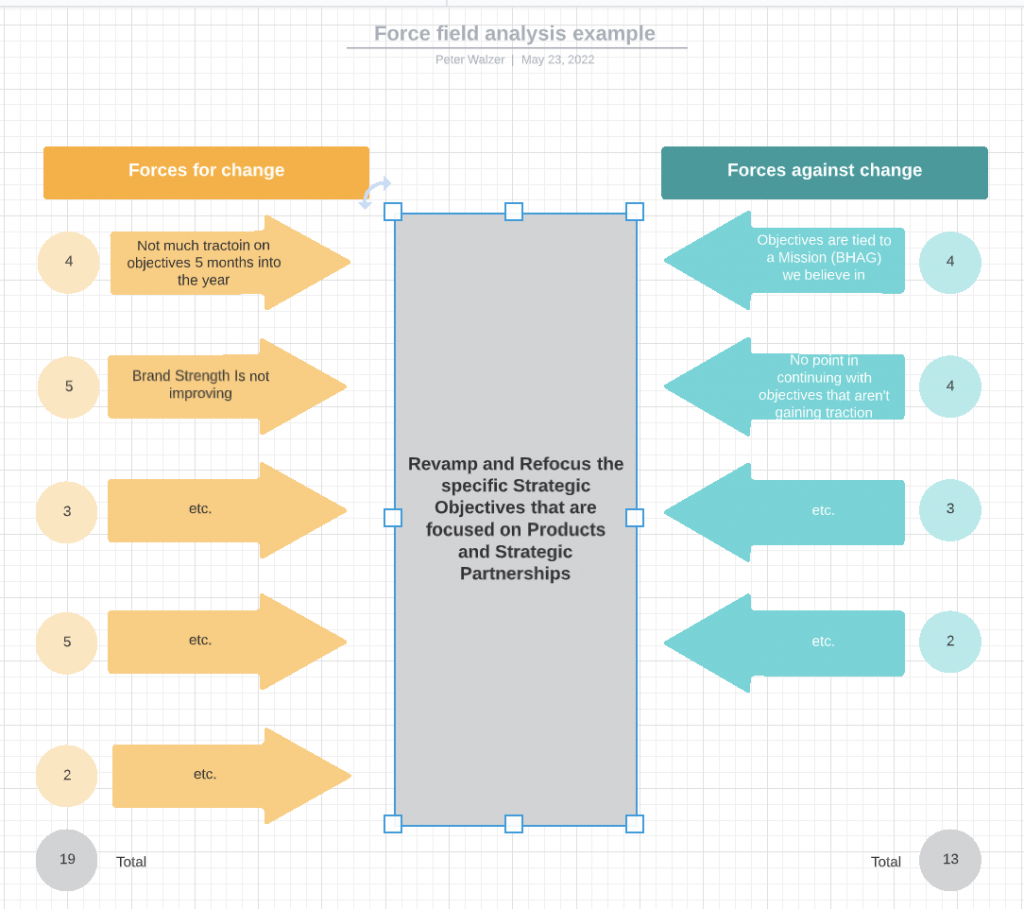An Organizational Reckoning
So I’ve hit the wall, in a sense. I am not sure where things need to head in my vocational life, but it is pretty clear that they are currently not headed in the right direction.
I know these things happen in all of our adult lives, so I revisited Ray Dalio’s Principles again (See the GlobeBlog Post on leveraging Dalio’s remarkable book here). I do understand that the basic motion of most of our lives is similar to what Dalio has drawn in his book (see Figure 1, below).
Let’s call this the Dalio Loop. Underlying the basic structure of the Dalio Loop(DL) are the following steps:
DL-1. Define your goals
DL-2 & DL-3. Identify and diagnose your problems (“As you move toward (your goals), you will encounter problems,” as Dalio says.)
DL-4. Design a plan to address or circumvent these problems
DL-5. Execute this plan to move through to the right results
DL-1. And…Define your Refined Goals (repeat step 1)
The challenge is that sometimes when you are following Dalio’s advise to ensure that you do these steps sequentially — as he instructs us: do not try to design problem resolution steps until you have fully diagnosed what the “root causes” of your problems are — you can feel like you have a tremendous number of difficult problems to address, and this can really feel like so much water is rising above your head. This is where I am today.
An Organizational Reckoning
What does it mean to have an Organizational Reckoning? I am not really sure yet, since I’ve just invented the term. What I am envisioning here is a way to deal with the significant challenges that have built up within an organization. In my firm’s case, these haven’t been destructive issues; it is more that the Strategic Objectives we’ve set for ourselves are not progressing as we had hoped.
What I am asserting here is: when most everything you’re focused on seems to be in one of those downward “challenged” states (Step 2 in the Dalio Loop, above), then it might be time to take a broader look at what your organization’s key challenges are as they relate to your current Strategic Objectives. This is where the Organizational Reckoning comes in. Here is its purpose:
A Strategic Replanning of the Strategic Objectives already defined for the current year. This means:
- Taking each Strategic Objective (or you can group similarly focused Strategic Objectives) and assessing whether it is worth revamping. What I envision here is a directional assessment.
- Picking an assessment tool to carry out this directional assessment with your executive team and key advisors. This can be done with several different business strategy tools, but for this kind of assessment I like the Force Field Analysis Tool (see Figure 2, below).
- Beginning the assessment with your team. Your team should come up with the assessment criteria first, as part of the brainstorming session. With the Force Field Analysis Tool this is straightforward, just try not to let the team over-complicate things.
- Then allowing each team member to provide their scored assessment without comment (at this point) and average the results.
- Discussing the results as a team, and determine if the directional change in the Strategic Objective(s) should move ahead.
- Moving ahead to implement changes, and do not delay making these changes, unless you can clearly articulate why. if you hesitate, the group will get the sense that this was “just an exercise,” and any future Organizational Reckoning will not be taken seriously.
Do we really need to Evolve?
When Dalio echos the sentiment that so many of us are familiar with: “evolve or die,” I suppose I want to just roll me eyes. The thing is, he really is right. Ultimately, we all need to evolve in our lives, including in those areas where we have stubbornly moved forward in a certain direction in our work. I am just rather sick of hearing this, because it can begin to seem like one more business revamping fad. The problem is you just can’t escape the fact that it is so true.
This is the idea of applying the Organization Reckoning approach. The underlying tenet of this approach: when everything you’re trying to accomplish seems to be full of significant challenges (or you could say, more honestly and openly, indisputable problems), perhaps there is something that needs help evolving so that your whole enterprise doesn’t gradually head down a path toward its demise.
Get new GlobeBlog Posts delivered directly to your email box. Sign-up for the BlueNotes Newsletter.



